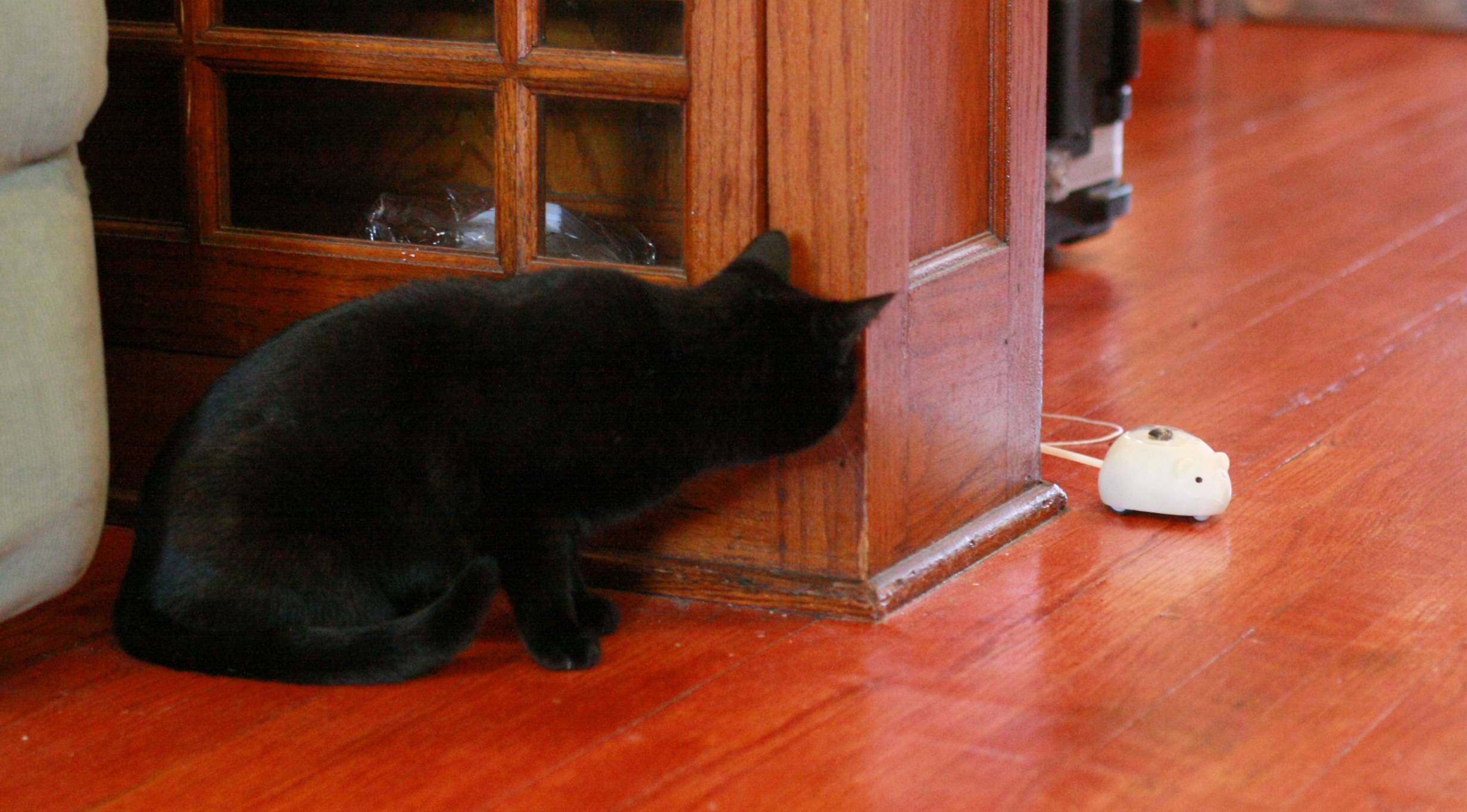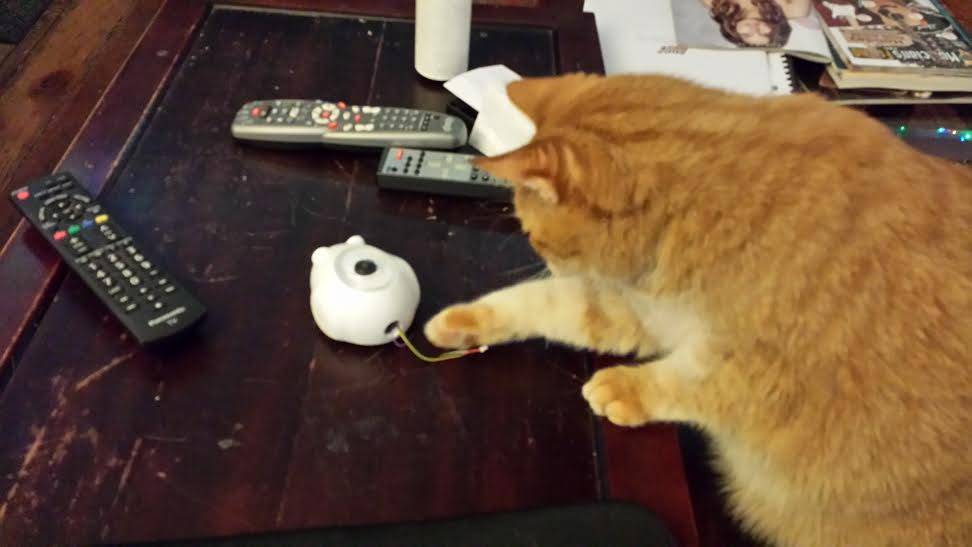I’m not a cat person myself, so it always surprises me just how much people love cats. For example, three grown men dedicating their life to making cat toys. I mean what else can you do with an electrical engineering Ph.D.?
About two years ago, Dave Cohen was in the Ph.D. program at the U of I in Electrical Engineering working on a wildlife protection project involving sensors. He brought home one of the sensors to monitor his car, and the idea for Mousr was born.
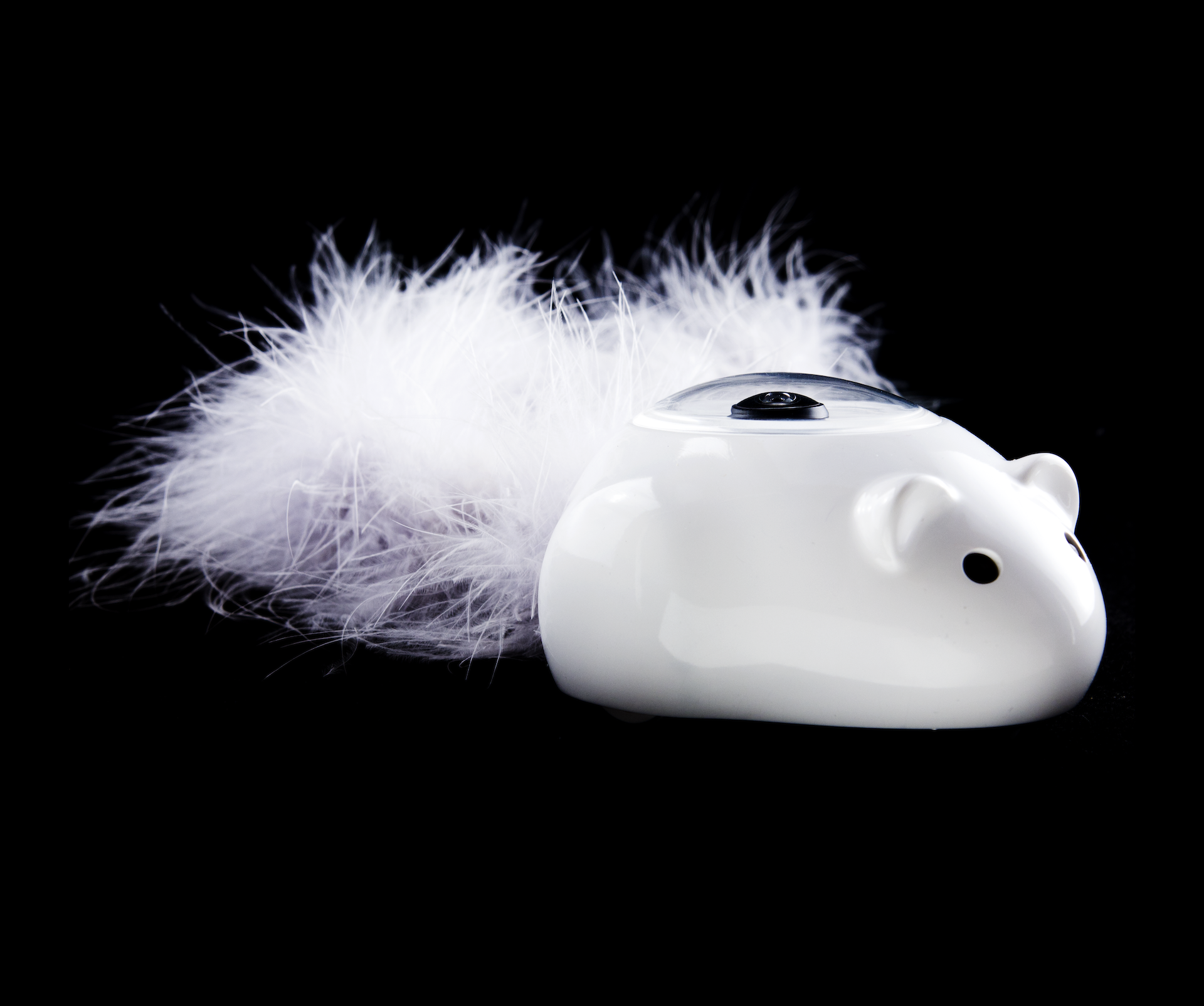
Mousr is basically a robot for your cat. It has sensors that allow it to evade your cat as if it was a real mouse. It’s supposed to give your cat the experience of hunting without you having to deal with a dead mouse at your doorstep. According to Petronics, the company created for Mousr, domestic cats can become fat, lazy, or destructive when they do not fulfill their instinctual need to hunt. I personally kind of like fat cats, but it’s probably better for cats to be healthy.
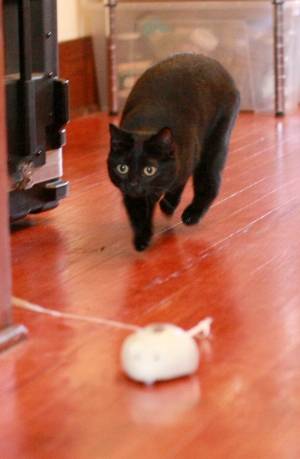
Mousr has yet to be tested around dogs. Cohen admits that a large dog would probably destroy the toy instantly. I have a feeling my beagle would destroy it pretty fast as well. Cats have yet to attack Mousr as they seem only interested in the tail.
Cohen and two other electrical engineers from the U of I recently spent four months in China developing Mousr. They were part of a program called HAXLR8R that helps hardware programs develop their projects. Cohen says over 300 companies applied to be a part of the program and only 10 were chosen. They were given $25,000 for the trip in exchange for some equity in the company. (Who needs Shark Tank?) HAXLR8R so far has helped 50 startups with a 97.5% survival rate.
Cohen says the best part about China was having a network of people available who have created and manufactured hardware projects before. In China, they worked with industrial designers and others that helped bring Mousr to life.
“The steps to go from a toy you make in your garage to something you are actually mass producing is a very cryptic process and it’s very daunting and hard–notoriously hard,” says Cohen.
Not surprisingly, Cohen says the biggest challenge about working in China was the language barrier. Cohen says it took the team almost two months to become competent in ordering parts online.
Right now they have multiple prototypes that highlight various aspects of Mousr. For example, one prototype has the Bluetooth capability that allows you to control Mousr yourself. I guess it’s for people who want to play with their cat, but don’t want to get off their couch to do so. Petronics currently has a mobile app they are working on to remotely control Mousr.
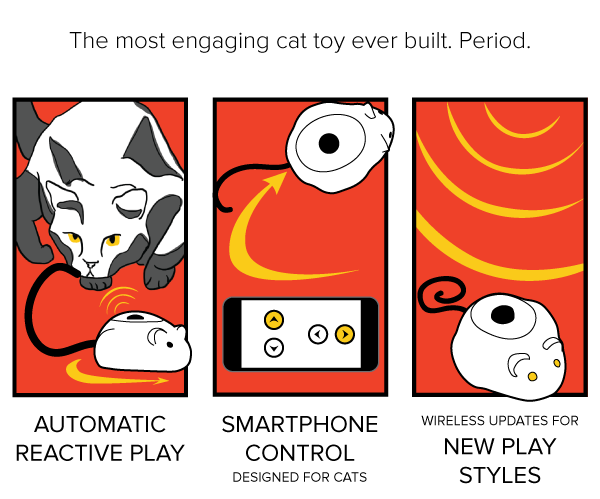
Petronics has recently launched a Kickstarter. They had a goal of $100,000 (already surpassed), which will help pay for tooling for manufacturing and ramen noodles for the next couple of months while they develop the software. Five people have already pledged $700 or more to be a Beta Tester. Beta Testers will get a prototype of Mousr before everyone else and will be involved in the development process. Cohen says he put those options on the Kickstarter but wasn’t really expecting anyone to pay that much money. The team has already been in contact with these donors. Out of the five, only one is family and one donor is actually from New Zealand. So far, the donations have been grass-roots based. The average donation has been about $120.
The team is planning on manufacturing in China and will be returning to China within the next couple of months to do so. Cohen says it would be too hard with the language barrier and time difference to remain in the United States while producing in China.
Cohen says he hopes to get Mousr into retail as quickly as possible. Right now, full retail price would be around $150. The price seems kind of high, but a price many would be willing to pay for a happy cat. Cohen says he thinks the toy will be more successful than others because they designed it with the cat in mind. They weren’t designing for the people buying the toy, but for the cat itself. Cohen says he figures if the cat is happy the owner will be happy as well.
